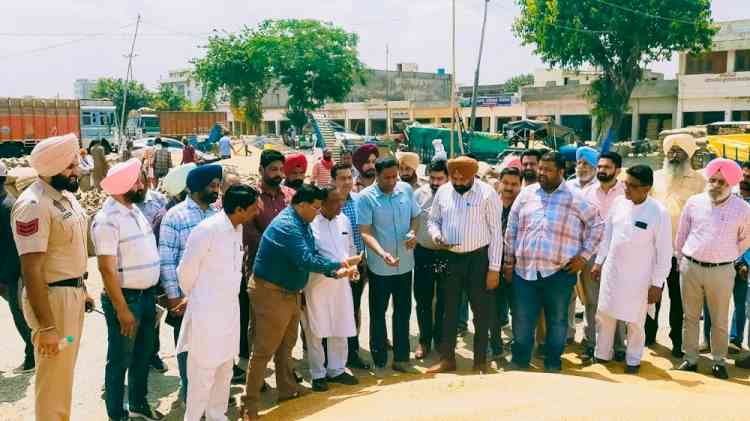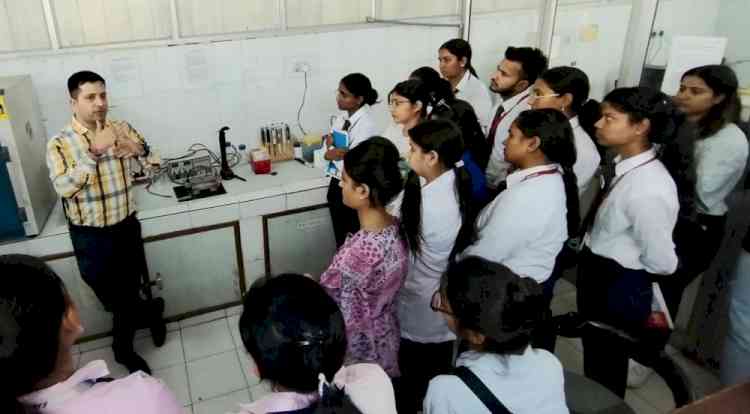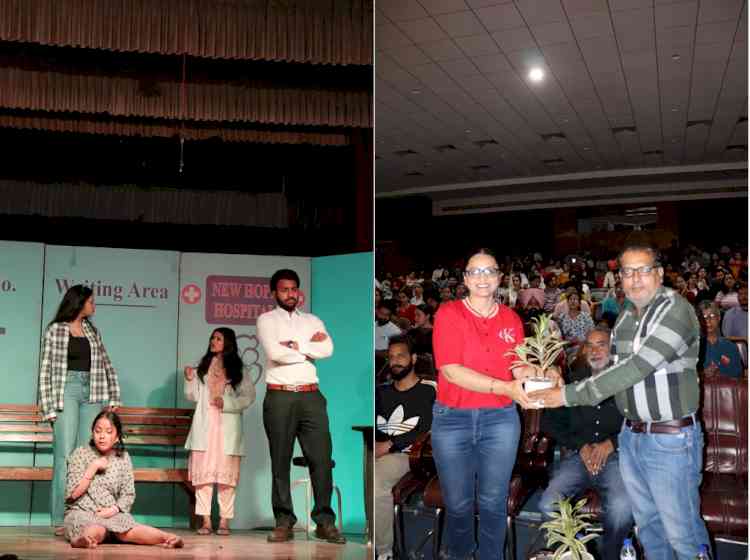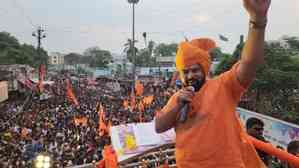Comprehensive India-Bangladesh ties must for prosperous South Asia: Sushma Swaraj (Evening Lead)
Dhaka, June 26 (IANS) Indian External Affairs Minister Sushma Swaraj Thursday said that New Delhi seeks a comprehensive and equitable partnership with Bangladesh for a secure and prosperous South Asia. In a speech at the Bangladesh Institute...

Dhaka, June 26 (IANS) Indian External Affairs Minister Sushma Swaraj Thursday said that New Delhi seeks a comprehensive and equitable partnership with Bangladesh for a secure and prosperous South Asia.
In a speech at the Bangladesh Institute of International and Strategic Studies following her meetings with President Md Abdul Hamid, Prime Minister Sheikh Hasina and her Bangladeshi counterpart Abul Hassan Mahmood Ali, Sushma Swaraj said that India was focussed on productive partnerships with its immediate neighbours.
"We are convinced India's development cannot be complete and sustainable unless we succeed in building productive partnerships with our immediate neighbours," she said.
"We will therefore devote our energy to working much more closely in pursuit of our development goals."
The visiting minister said: "We will walk the extra mile to create opportunities and to build virtuous cycles of prosperity in the region."
"We will pursue the goal of economic integration and inter connectiveness through trade, investment, transportation, capacity building, environment-friendly practices and means that promote equitable development in the region.
"Building a comprehensive and equitable partnership with Bangladesh is essential for realisation of our vision of a stable secure and prosperous South Asia," she said.
Earlier, Indian external affairs ministry spokesman Syed Akbaruddin said in a statement that Sushma Swaraj's discussions with Prime Minister Hasina and her Bangladeshi counterpart "have been constructive and productive, fruitful and successful".
"...The entire gamut of issues that constitute the 'staples' of India-Bangladesh relations were all discussed," he added.
Regarding the easing of visa norms for Bangladeshi nationals, Akbaruddin said: "The external affairs minister has today conveyed the decision of the government of India that Bangladeshi nationals below 13 and above 65 years of age will be eligible for five-year multiple entry visas as against the current practice of multiple entry for one year."
Stating that the issue of energy cooperation also came up during the day's parleys, he said India has agreed to supply an additional 100 MW of power from the Palatana project in Tripura.
According to the spokesman, Sushma Swaraj has confirmed India's willingness to increase the frequency of the Maitree Express and the number of air-conditioned coaches between the two countries, provided Bangladesh is agreeable.
She also proposed that India and Bangladesh should work on a possible Dhaka-Shillong-Guwahati bus service, Akbaruddin said.
Earlier Thursday, addressing the media after his meeting with Sushma Swaraj, the Bangladeshi foreign minister said that she had told him that the Indian government was trying to reach a consensus on a water sharing formula for the Teesta river so that a treaty could soon be signed, bdnews24.com reported.
The visiting minister, he said, was hopeful about implementing the long-pending Land Boundary Agreement very soon.
Ali said that Sushma Swaraj has requested him for a special economic zone for Indian investors.
The two ministers also discussed matters like security, trade, border issues and counter-terrorism.
During her meeting with Prime Minister Hasina, Sushma Swaraj handed over a letter from Prime Minister Narendra Modi inviting her to visit India.
Swaraj met Hasina at the latter's office at 11.30 a.m.
"Swaraj handed over the letter during a meeting at the prime minister's office," Xinhua quoted the Bangladeshi foreign minister as saying.
Swaraj called on Hasina to discuss key bilateral issues, sources said.
According to the sources, they discussed trade and investment, security, connectivity, and border management, among other issues.
Bilateral issues between the two countries came up for discussion during the meeting, which lasted for about one hour.

 cityairnews
cityairnews 
















